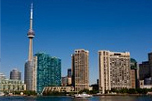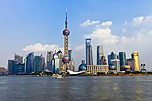Berlin, 28 June 2011
Friends from the press,
Good afternoon. The establishment of the China-Germany inter-governmental consultation mechanism, a consensus I reached with Chancellor Merkel, is a creative move in both China-Germany relations and China-EU relations. The just concluded first round of consultation involved strong teams from both sides and covered a wide range of topics. It was efficient, pragmatic and fruitful. This is also the first time for me to lead a delegation of 16 ministers to visit Germany since I assumed premiership nine years ago. We have signed and published almost 20 cooperation agreements, and concluded commercial contracts worth over US$15 billion. I wish to thank Chancellor Merkel for the important role she has played and commend the ministers from both sides for their effective work.
The success of the first round of consultation has underscored the firm commitment and confidence of our two countries to boost cooperation and seek common development with a long-term vision. It has lent fresh impetus to the further progress of China-Germany relations. In my concluding remarks at the consultation, I emphasized that China regards Germany as an important strategic partner and that the strategic importance of our relations will only increase, rather than decrease. This is in the interest of both countries and the world as well. The practical cooperation between China and Germany enjoys a broad prospect. The two sides need to work closely to earnestly implement a host of important initiatives, including establishing a strategic partnership on electric vehicles, strengthening cooperation between SMEs, forging an alliance on vocational education cooperation, setting up a standardization cooperation committee, and building a Sino-German platform for life science innovation, all in a bid to lift our practical cooperation to a higher level. There is no denying that our two countries are different in history, culture, political system and stage of development, and that we do not see eye to eye with each other on every issue. But what is more important is that the two sides should respect each other, treat each other as equals, and seek common ground while shelving differences. We should work to promote mutual understanding through enhanced high-level communication, various dialogue mechanisms and closer people-to-people and cultural exchanges.
Ladies and Gentlemen,
The continued progress of China-Germany relations in recent years has brought tremendous benefits to our two countries and peoples and has positive implications for peace and development of the world. China sincerely wishes to work with Germany to explore a bright path of mutual benefit and win-win progress for major countries and jointly build the 21st century into a peaceful, cooperative and harmonious one.
This is my fifth visit to Germany as China's premier. I am deeply impressed by Germany's advanced economy and the prudence and pragmatism of the German nation. I am confident that our two great countries and nations could become good partners of cooperation. I have invited Chancellor Merkel to visit China before the end of this year. I would also like to ask friends from the press to visit China more and continue to contribute to deepening the understanding and cooperation between people of our two countries.
Thank you.
Journalist: You have expressed optimism about the future of the euro and the solution of problems in the euro zone. Do you think China should increase its investment in the strong EU countries like Germany and buy bonds from some less strong ones?
Premier Wen: First if all, I want to say that although many countries have begun to recover from the international financial crisis, some major economies still face high unemployment. The fluctuation of major international currencies has led to volatility of commodity prices. Inflation is no longer an issue for a single nation, but an issue for the whole world. Some countries in Europe have fallen victim to sovereign debt crisis. All these show that the global economy is still beset by uncertainties and destabilizing factors after the international financial crisis. But let me come back to your question and tell you why I have confidence in Europe. First, Europe has countries like Germany that enjoy an advanced and strong real economy. Second, Europe boasts strong scientific and technological resources and a rich talent pool. Third, the current problems in Europe are only temporary and can be gradually resolved through financial reform and adjustment. China has expressed its support to Europe on various occasions. In other words, when Europe is in difficulty, we have extended a helping hand and expressed our confidence in the European economy and in the euro. We have also expressed our readiness to buy certain amounts of treasury bonds from some countries in the light of actual needs. All these are aimed at helping the European economy realize a stable recovery and enjoy further growth, which we believe will benefit the entire world. This is where we stand on this issue.
Journalist: In early 2009 when the world was at a grave moment of a spreading financial crisis, you visited several countries including the UK and Germany. That visit was called a "journey of confidence". Now two years on, you have come to Britain and Germany again. What has struck you most during this trip? Do you feel more confident?
Premier Wen: That was a very cold spring in 2009. My visit started from Davos and then I came to Germany. To be honest, we had no idea what impact the financial crisis would have on the world economy. I met Chancellor Merkel in her office. At one point, both of us looked out of the window, pondering over the same question: Are we able to bring the economy under control and set it on a path of fast recovery? I recall the sentence I repeated the most at that time was "Confidence is more precious than currency and gold." This time, I visit Europe in the midst of summer, and I sense less melancholy in the air. I can tell from the looks of the people and the performance of the economy that after two years of hard work, Europe has managed to head off the financial crisis and its economy has again stood firm, recovered, and even moved forward. Not without difficulties though, as I just said, some countries still face serious problems and the threat of inflation has reached the shore of developed economies. Under such circumstances, we must not be blindly optimistic or lower our vigilance. We must continue to advance economic and financial reforms, including the reform of the international financial governance structure, strengthen regulation and push the economy forward in a sound and steady manner. I know it must be an uphill journey, but the world has set the goal of a strong, balanced and sustainable development. Countries need to join hands to address challenges and overcome difficulties. It is again the message of confidence that we wish to send to Europe this time. Only confidence can lead us through difficulties and only confidence can bring about closer cooperation.
Journalist: Are China and Germany joining hands in foreign policies? The two countries adopted the same position on Libya at the UN Security Council. Do you have similar or identical views on other issues? If yes, what are they?
Premier Wen: My talks with Chancellor Merkel actually started from last night. We had an in-depth exchange of views on the international situation, with a focus on the situation in west Asia and north Africa, Libya included. I shared with her my views. First, we respect the choices made independently by the people of this region. We believe that the future of a country is ultimately determined by its people. Second, we hope Security Council Resolution 1973 will be implemented in an earnest and accurate way. The issue of Libya should be settled through political and peaceful means at an early date. Foreign intervention may win a war, but will hardly win peace and stability. Iraq is an example, and so are the Middle East and Afghanistan. The recovery, reconstruction and stability of Afghanistan eventually need to rely on the Afghan government and people. I know this is a tough road and a heavy task. It is natural that there are different views in the world on such regional issues. I hope that through discussions, we can get the facts straight, find common understanding and eventually reach consensus in an effort to promote peace, stability and prosperity of the world.




